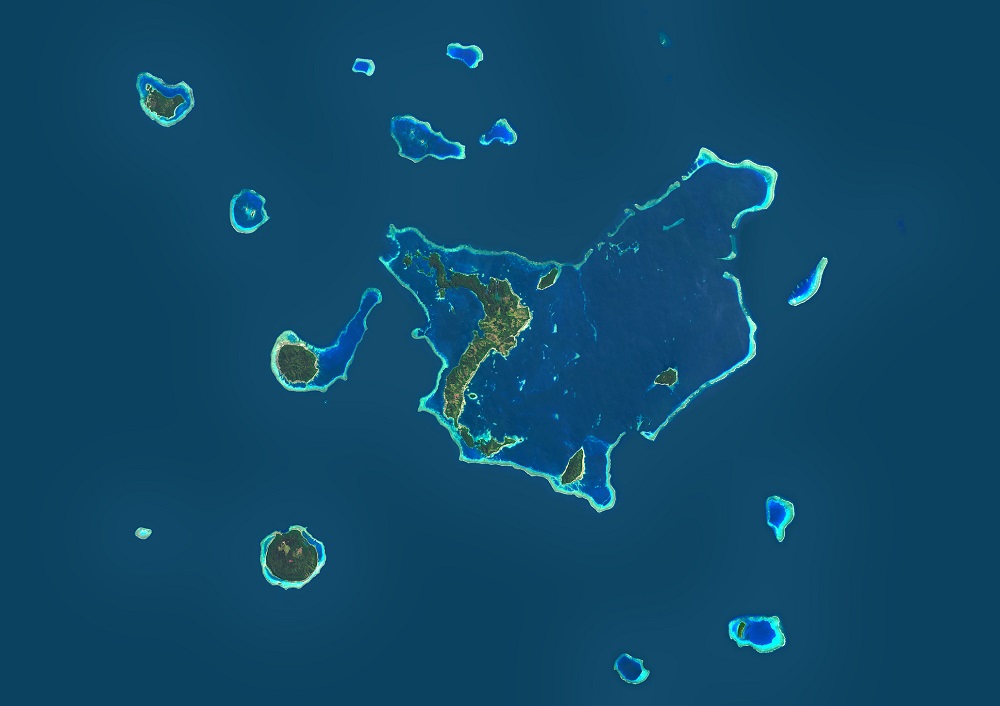Agenda for change: Australia’s regional engagement
Posted By Gill Savage on February 17, 2022 @ 11:00

On 2 February, ASPI released Agenda for change 2022: shaping a different future for our nation [1] to promote public debate and understanding on issues of strategic importance to Australia. The key message in Agenda for change 2022 is that we need to embrace uncertainty, engage with complexity and break down the silos. Our economic prosperity, national resilience and security depend upon it.
In the lead-up to every federal election, ASPI looks at the big challenges facing Australia and what’s needed to address them. The chapter in Agenda for change 2022 by Fergus Hanson, ‘How we risk losing the region and what we should do about it’, highlights that the ‘real contest’ in our region will occur in the smaller states, not big players, and this is where ‘we risk losing the battle before we realise it has started’.
Hanson starts by considering the ‘arc of fragile democracies that hug the world’s most powerful authoritarian state’—China. He acknowledges that China isn’t fully responsible for the creation of these fragile democracies. However, he notes there’s ‘little doubt that the fragility of these states will be exploited’ to advance the Chinese Communist Party’s interests and if ‘democratic powers instead faced a region of pliant CCP client states, support for the continuance of the rules-based order would be structurally eroded’.
Hanson cites the Economic Intelligence Unit Democracy Index [2], which maps ‘a powerful story for Australia and its partners’.
‘At one end of the arc are democratic Japan, Korea and Taiwan. At the other is the behemoth of India. And, in the middle, Australia. But as the map so starkly portrays, the region is hardly a sea of entrenched democracies.’
These fragile democracies, says Hanson, will be ‘broken down and weakened through a wide spectrum of hybrid threats. Ground zero of this effort will be distorting the information environments of those states to weaken already fragile democratic supports.’
Addressing the situation is challenging. Nations have a tendency for omphaloskepsis—navel-gazing—when it comes to hybrid threats. States tend to focus on what’s happening within their own borders. They focus on threats like ‘election interference, the co-option of domestic community groups, coercive diplomacy and the silencing of domestic media voices by foreign states’ rather than looking at how those threats are affecting other states and what can be done to support them to protect against the threats.
The nature of the threats also represents a challenge for Australia. Countering hybrid threats requires them to be identified, which takes effort and transparent disclosure to the public to allow reasoned debate prior to countermeasures being developed. Hanson notes, ‘As Australia has seen, that can result in billion-dollar coercive trade measures and blistering diplomatic broadsides.’
While Hanson acknowledges that ‘obvious responses [like censorship] to foreign meddling in information ecosystems can also be damaging to democracy’, he argues that action is needed and proposes several initiatives Australia should pursue.
The first is a ‘bureaucratic reckoning with the slide in democracy in the region’, to preserve and strengthen the region’s democratic states through a strategy ‘developed in collaboration with key like-minded partners in the region, including Japan and the US’ supported by diplomatic effort to encourage buy-in. The second focus should be on redirecting Australia’s aid program ‘towards democratic support and consolidation in the region’.
The third focus should be on ‘Australia and other large democratic states’ playing a ‘convening role by bringing the big tech platforms and states together to collaboratively identify strategies to counter state-backed information operations’. Hanson says this ‘could lessen the potential for weak leaders to exploit this opportunity to weaken free speech’.
A hybrid threat centre, like the one Europe has established in Helsinki, ‘could identify and report on hybrid threats facing the region, giving victim states enough distance from the centre to escape retaliation from those conducting the malicious activity’.
The need for Australia to rediscover what Peter Jennings called in his Agenda for change 2022 chapter, our foreign policy ‘mojo’ is also emphasised. Hanson says that Australia needs to ‘play a leading, behind-the-scenes, diplomatic role in bringing other states in to support this initiative of democratic consolidation’.
And if the Department of Foreign Affairs and Trade can demonstrate that it has an appetite for and can achieve reform, there should be a ‘large redistribution of funding to position Australia for a contest that won’t be kinetic and will require diplomatic expertise and scale to win’.
Hanson eloquently points out that the ‘arc of democracies is the foundation upon which US, Australian, AUKUS and Quad strategies for the region rest. Without them, the remaining democracies would face an infinitely more difficult operating environment and basis for engagement.’
Article printed from The Strategist: https://www.aspistrategist.org.au
URL to article: https://www.aspistrategist.org.au/agenda-for-change-2022-australias-regional-engagement/
URLs in this post:
[1] Agenda for change 2022: shaping a different future for our nation: https://www.aspi.org.au/report/agenda-change-2022-shaping-different-future-our-nation
[2] Economic Intelligence Unit Democracy Index: https://www.eiu.com/n/campaigns/democracy-index-2020/
Click here to print.